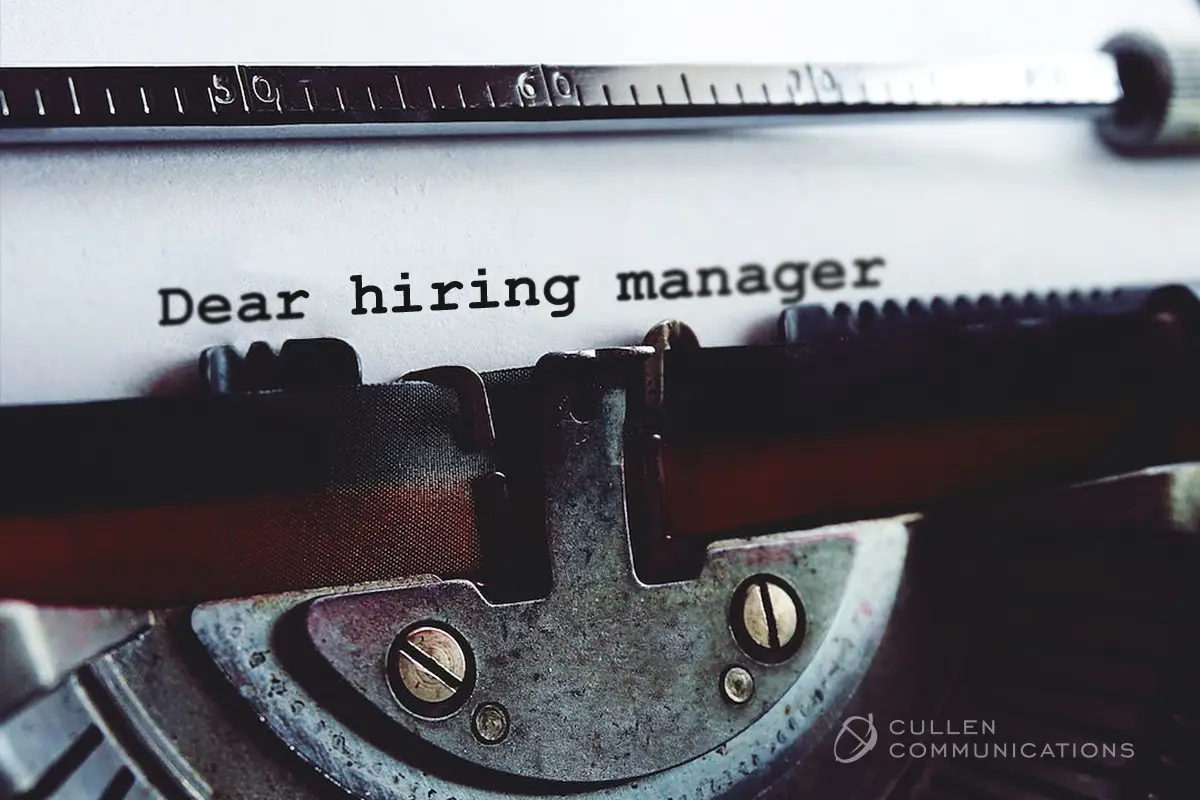Entering the PR industry can be achieved through various means, with the initial step often hinging on the quality of your cover letter.
For many young graduates and would-be PR professionals, they would be armed with a polished CV and a strong determination to make an impact. The question remains: how can you persuade a busy PR agency to consider you for the role?
The challenge is how to make that first move into an agency. You’ve got your diploma or degree, your CV is honed to perfection, you’re ready to change the world – how can you convince a busy PR agency that you’re worth a look?
You may be surprised to learn that your cover letter can make a difference. While many firms rely on recruitment specialists to find and filter candidates, all agencies still receive applications directly by mail. So how do you write a letter that catches the eye?
Relevant Insights:
Ask yourself who will be reading it
Seems obvious, but this is the starting point for every letter you’ll ever write. Who’s going to read this? Why are they going to the trouble of reading it? How do I want them to react? What problem can I offer to solve? What will make this person want to find out more about me? Do some homework. Have that person in your mind’s eye as you write.
That means ditching the generic ‘Dear Sir/Madam’ approach and tailoring your content, and your tone of voice, towards your target audience. PR is a creative business so your tone, while respectful, doesn’t need to be too formal.

Don’t be like all the others
There are a lot of talented, qualified people trying their best to get into PR these days. The competition is fierce and even when they’re not in recruitment mode, the average PR agency gets multiple applications every month.
Crafting a standout cover letter can set you apart from the competition, but it’s important to remember that this doesn’t entail using bold fonts or writing in eccentric colours. Instead, it involves considering your audience carefully and tailoring your letter to their interests. Take the time to investigate the recipient’s background and demonstrate how your abilities and demeanour align perfectly with their requirements. Be sure to read their organisation’s blog and review their list of clients to showcase your knowledge of their brand.
Speak directly through your words
By now, you should realise that this is not a step-by-step guide to writing a cover letter. It’s a guide to some of the things you should be thinking about when you’re writing a cover letter.
One of those things, of course, is your language. When writing in a business context, some people think it’s necessary to use ‘important’ words, corporate language, or business jargon. This usually has a stifling effect and makes it impossible for your personality to come through. Get that person back in your mind’s eye and talk directly to him or her. Be bold and direct – the way you are in person.
Edit, polish, read, refine

This needs to be said. If you are trying to position yourself as a potential PR professional, spelling mistakes are not acceptable. Neither is poor grammar or punctuation errors. These will seriously undermine the impression you are trying to make and undo a lot of your hard work.
But it’s an easy fix. All you have to do is read your letter from start to finish. Read it again. Correct any mistakes. Read it again. Take a hard look at those words. Now read it out loud. Does it sound right? Does it sound natural? Does it sound like you? This polishing stage is a vital part of any written communication because you can always make it better.
Hard work and homework
There’s no secret formula to constructing an effective cover letter. Start by finding out as much as possible about the company and the individual to whom you’re writing. Understand the challenges they might be facing and come up with some insights and angles that show how you (and you alone!) can help be part of the solution.
Then write – in your own voice, and from the heart. Don’t settle for draft 1 but keep improving, improving, improving until you’re sure that your letter will be better than any other letter they receive that week or even that month. The more hard work and homework you put in, the more you’ll stand out.





